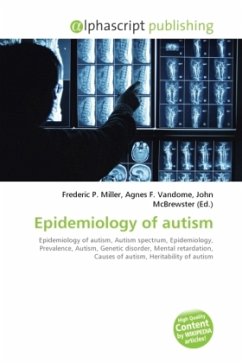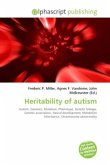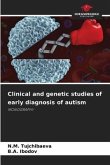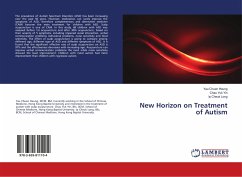The epidemiology of autism is the study of factors affecting autism spectrum disorders (ASD). Most recent reviews of epidemiology estimate a prevalence of one to two cases per 1,000 people for autism, and about six per 1,000 for ASD; because of inadequate data, these numbers may underestimate ASD's true prevalence. ASD averages a 4.3:1 male-to-female ratio. The number of children known to have autism has increased dramatically since the 1980s, at least partly due to changes in diagnostic practice; the question of whether actual prevalence has increased is unresolved, and as-yet-unidentified environmental risk factors cannot be ruled out. The risk of autism is associated with several prenatal factors, including advanced parental age and diabetes in the mother during pregnancy. ASD is associated with several genetic disorders and with epilepsy, and autism is associated with mental retardation.
Bitte wählen Sie Ihr Anliegen aus.
Rechnungen
Retourenschein anfordern
Bestellstatus
Storno








